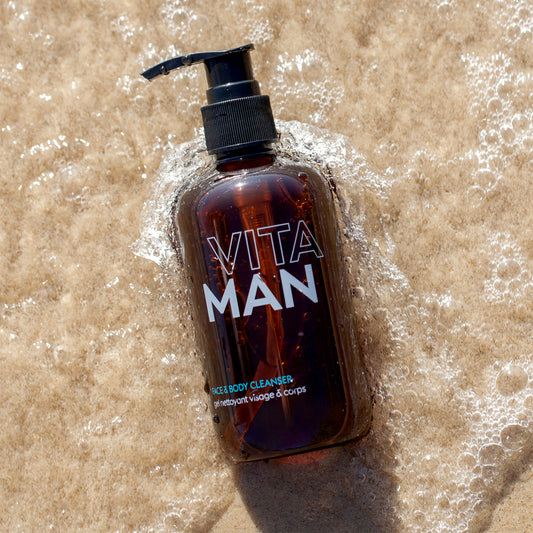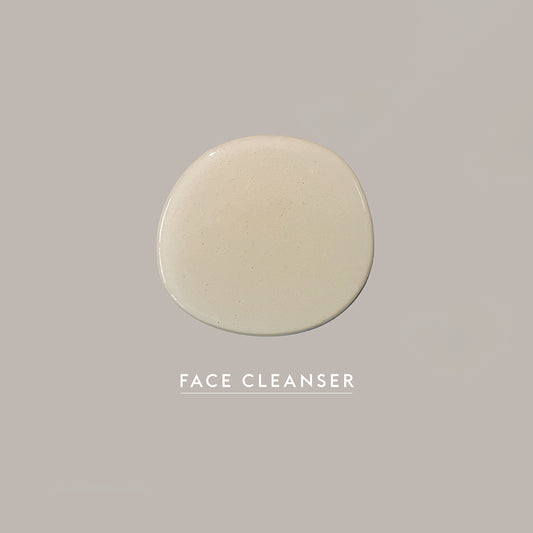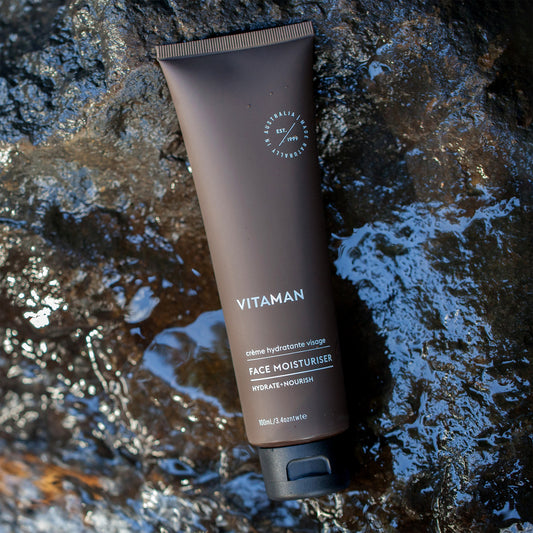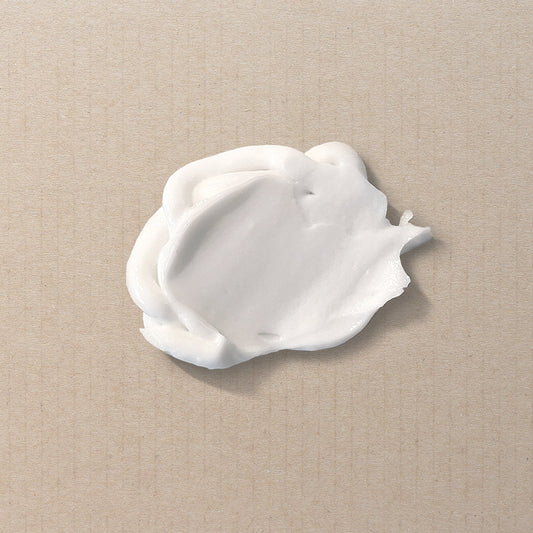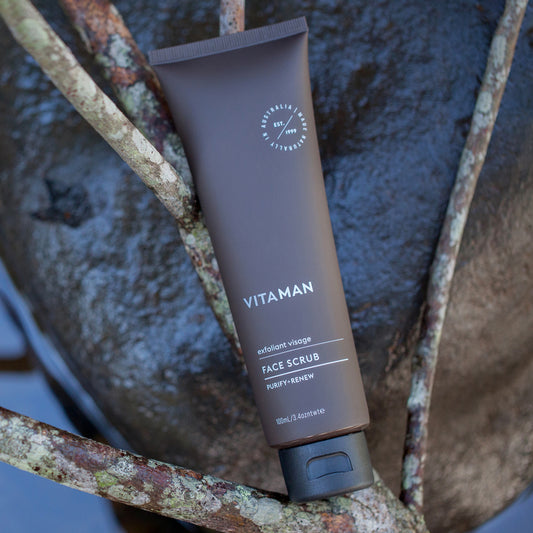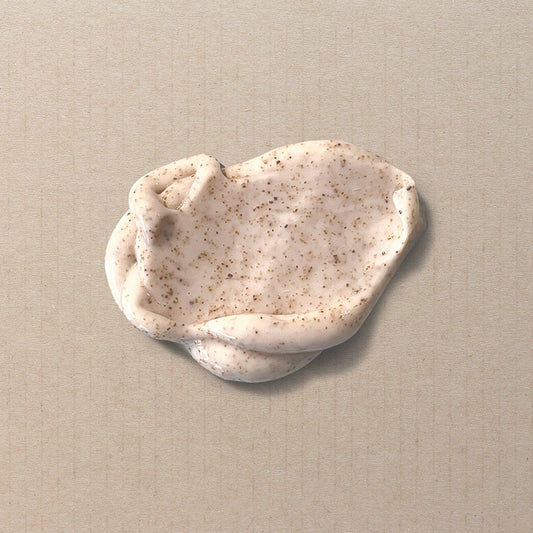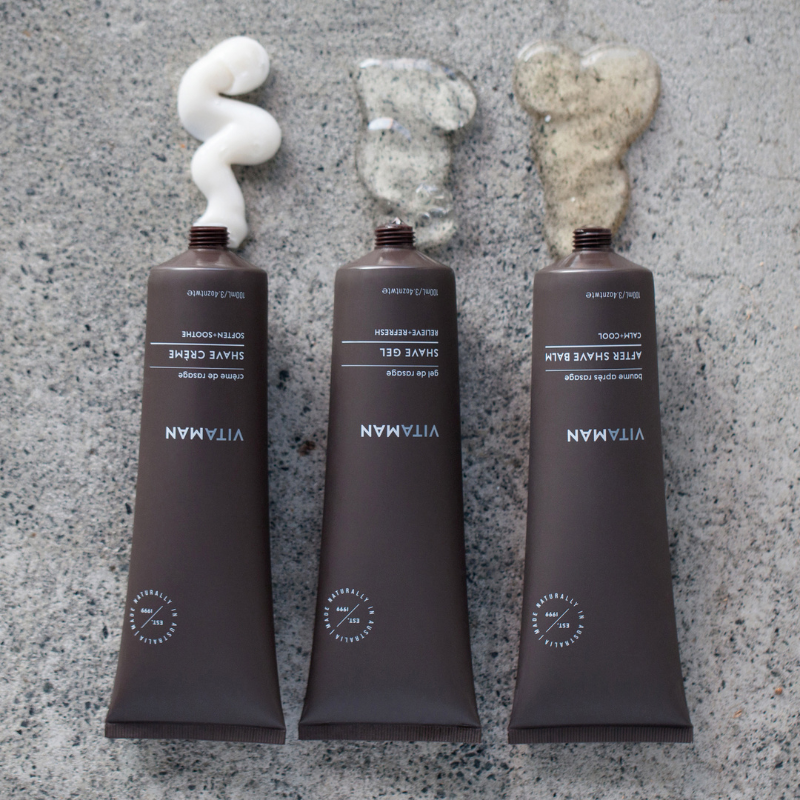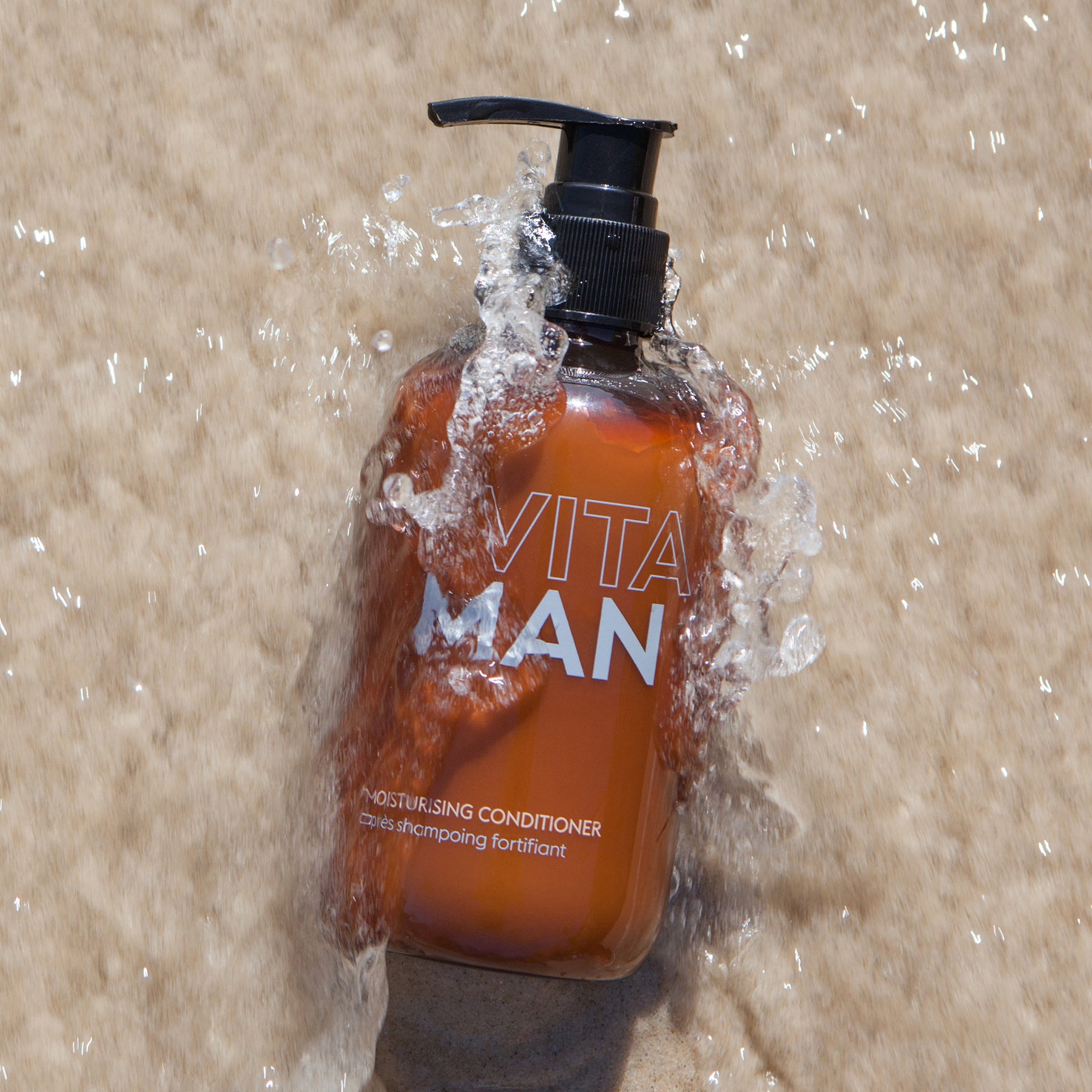Think you’re safe in the shower? Think again!
We’re here to expose the silent skincare saboteur lurking in your daily routine—soap.
Yes, the very thing you rely on to stay clean could be stripping away your skin’s natural defenses, leaving it vulnerable, irritated, and anything but healthy.
Read on to find out why soap might not be the hero you thought it was, and discover smarter, skin-friendly alternatives...

Soap: Friend or Foe?
For years, you've been told that 'harmless' little bar soap is your best friend; the key to staying clean and odor-free.
But could this seemingly innocent daily 'essential' be harming your skin?
According to Dr. Robyn Chutkan, gastroenterologist and author of The Microbiome Solution, using soap every day may be one of the worst things we can do for your skin’s health.
As Dr. Chutkan explained to Health.com, your skin is home to a variety of beneficial bacteria, collectively known as the microbiome.
What Is Microbiome In Skincare?
Your skin's microbiome is a community of beneficial bacteria, fungi, and other microorganisms that live on your skin.
It acts as a natural defense layer, helping protect against harmful pathogens, reducing inflammation, and keeping your skin balanced and healthy.
"This microbiome isn’t just harmless—it’s essential," she says. "It acts as a natural defense against harmful germs and environmental irritants."
By lathering up daily with commercial soaps, you're not just washing away dirt; you're stripping your skin of the bacteria that helps keep it balanced and resilient.

Why Soap Can Be Harmful to Your Skin’s Microbiome
Commercial soaps are often packed with synthetic ingredients, preservatives, perfumes, and harsh chemicals, like:
-
Parabens: Used in soaps to extend shelf life by preventing mold and bacteria growth. However, parabens can mimic estrogen in the body, leading to concerns about potential hormonal disruption.
-
Synthetic Fragrances: While fragrances make soap smell nice, they are often derived from petroleum and can contain a mixture of numerous undisclosed chemicals. Synthetic fragrances can be harsh on the skin, causing allergic reactions, redness, itching, and even contact dermatitis.
-
Formaldehyde-Releasing Agents: Many soaps include preservatives like formaldehyde-releasing agents (e.g., DMDM hydantoin or quaternium-15) to prevent microbial growth. Long-term exposure may even raise health concerns, as formaldehyde is a known allergen and a potential carcinogen.
-
Triclosan and Antibacterial Agents: Some soaps, especially antibacterial ones, contain triclosan or similar agents to kill bacteria. However, triclosan can disrupt the skin's microbiome, removing not only harmful bacteria but also beneficial ones that protect your skin.
-
Alcohols: Certain types of alcohol (like ethanol and isopropyl alcohol) are added to soap formulas for their quick-drying effect. While they help kill bacteria and create a refreshing feel, they can be very drying and disrupt the skin’s moisture balance.
-
Artificial Colors and Dyes: Many soaps contain artificial dyes to achieve specific colors, often for marketing appeal. These colorants are typically derived from petroleum and can be irritating to the skin.
While these ingredients might give you that "squeaky clean" feeling, they also strip away the natural oils and beneficial bacteria on your skin.
When you wash it all away, Dr. Chutkan explains, you're "dismantling your skin’s first line of defense."
Without this bacterial shield, your skin is left exposed and loses its ability to fend off common irritants, making it more vulnerable to redness, dryness, and irritation.
But Wait, Hasn’t Soap Been Used For Thousands Of Years?
Yes, soap has a long history, dating back to ancient Babylon, Egypt, and Rome.
However, traditional soaps were often made from natural fats and oils mixed with wood ash or alkaline salts.
Modern commercial soaps, on the other hand, can contain synthetic ingredients, harsh chemicals , and artificial fragrances that may strip your skin of its natural oils and disrupt your skin’s microbiome.
What Can I Use Instead of Soap?
If daily soap use is giving your skin a hard time, you might wonder: what’s the alternative?
Some suggest water-only cleansing, which can work for maintaining your microbiome, but let's be real – skipping any kind of cleanser may leave you, well, a bit less than fresh. (The body can do a lot on its own, but it needs a little help in the odor department.)
The simplest is to swap your soap out for a gentle face and body cleanser that respects your skin's microbiome while keeping you smelling fresh.
Look for ingredients like witch hazel, aloe vera, and sea salt, which cleanse gently without stripping away beneficial bacteria.
And for odor control - natural essential oils like sweet orange and lemon myrtle add a subtle, clean scent without overpowering your natural aroma or disrupting the skin’s balance.
This combo leaves you feeling fresh and naturally protected without the harsh effects of synthetic ingredients, so you can maintain your skin’s health and keep smelling good all day.
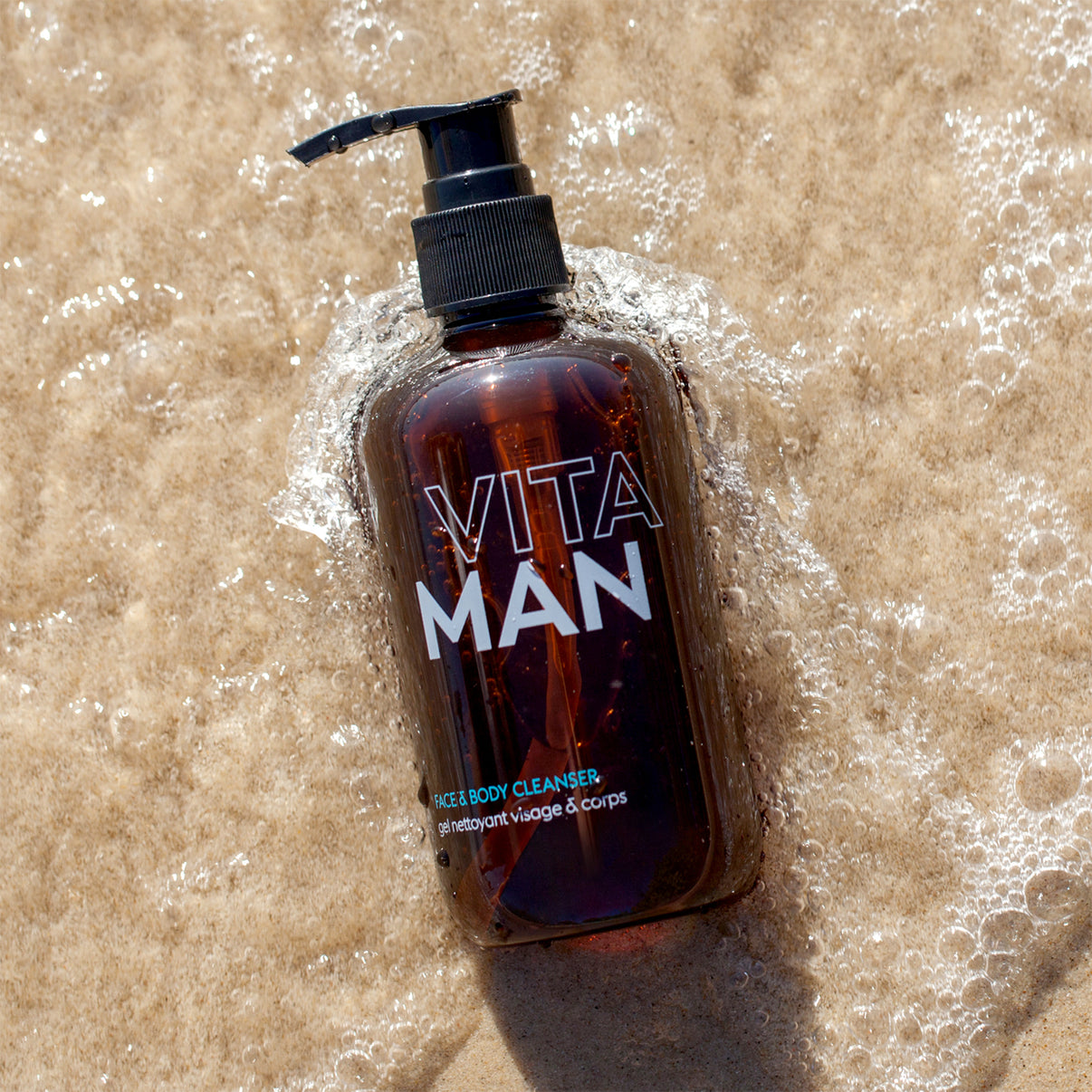
Effective, gentle cleanser that controls oil without causing dryness, irritation, or leaving a greasy residue.
SHOP NOWCommon Concerns About Ditching Soap
"Will I Smell If I don't Use Soap?"
The short answer is: not necessarily! Your body’s natural oils aren’t inherently smelly. Odor comes from bacteria that thrive in sweat-prone areas, like your armpits and groin.
You can use a gentle cleanser on these areas without needing to scrub your entire body every day.
Remember, it’s about targeting the right spots, not going overboard.
"Does Not Using Soap Cause Acne?"
It’s often the opposite. When you stop stripping your skin with soap, you allow your microbiome to do its job.
A healthy microbiome helps to keep acne-causing bacteria in check.
By ditching harsh soap, you might find that your skin naturally becomes less prone to irritation and breakouts.
"Isn’t Anti-Bacterial Soap the Best for Cleanliness?"
Anti-bacterial soaps promise super cleanliness, but they often come with a catch. These products don’t just kill bad bacteria; they kill good bacteria too.
As Health.com explains, the FDA has raised concerns about the long-term safety and effectiveness of anti-bacterial soaps.
Unless you’re in a medical setting, a regular mild soap or even just water is usually enough to get the job done without annihilating your microbiome.
The Bottom Line: Less Soap, More Balance
Ultimately, keeping your skin healthy isn’t about scrubbing every inch with soap.
Instead, target areas that need it, avoid harsh anti-bacterial products, and let your skin’s natural microbiome flourish.
Take it from Dr. Chutkan and her research into the microbiome: sometimes, less is more.
So next time you hop in the shower, consider easing up on the soap. Your skin will thank you for it.





